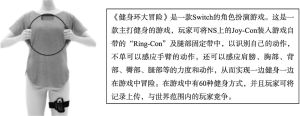摘要
基于社会生态心理学视角,本研究对口碑传播在高居住流动性环境下的心理功能进行了探索。研究一发现个体的居住流动性与口碑传播意愿呈正相关关系,研究二进一步探明了二者的因果关系及关系不确定性在其中的解释作用,研究三则直接揭示了口碑传播行为的积极心理功能——降低高居住流动性所带来的关系不确定性。本研究发掘了高居住流动性社会中口碑传播现象蕴含的特定心理意义,为人们理解驱动传播行为的社会生态环境动因提供了重要参照,并可为社会变迁背景下的营销传播策略制定提供依据。
作者
李雅雯 ,北京师范大学心理学部硕士研究生。
杨婧洁 ,北京师范大学心理学部硕士研究生。
王芳 ,北京师范大学心理学部教授、博士生导师。
- 廖以臣、许传哲、龚璇,2019,《网络环境下广告怀旧有助于品牌的口碑传播吗?基于情感双维度视角》,《心理学报》第8期。
- 微信,2019,《2018微信年度数据报告》,https://support.weixin.qq.com/cgi-bin/mmsupport-bin/getopendays。
- 新榜有数,2021,《小红书营销洞察报告(2021上半年)》,https://www.cbndata.com/report/2697/detail?isReading=report&page=1。
- 新浪微博数据中心,2019,《2018微博用户发展报告》,https://data.weibo.com/report/reportDetail?id=433。
- Altman,I.,Vinsel,A.,& Brown,B.H.(1981). Dialectic Conceptions in Social Psychology:An Application to Social Penetration and Privacy Regulation. In L.Berkowitz(Eds.),Advances in experimental social psychology(Vol.14,pp.107-160). New York:Academic Press.
- Babić Rosario,A.,Sotgiu,F.,De Valck,K. & Bijmolt,T.H.(2016). The Effect of Electronic Word of Mouth on Sales:A Meta-Analytic Review of Platform,Product,and Metric Factors. Journal of Marketing Research,53(3),297-318.
- Baumeister,R.F. & Leary,M.R.(1995). The Need to Belong:Desire for Interpersonal Attachments as a Fundamental Human Motivation. Psychological Bulletin,117(3),497-529.
- Berger,C.R. & Bradac,J.J.(1982). Language and Social Knowledge:Uncertainty in Interpersonal Relationships. London:Edward Arnold.
- Berger,C.R. & Calabrese,R.J.(1975). Some Explorations in Initial Interaction and Beyond:Toward a Developmental Theory of Interpersonal Communication. Human Communication Research,1(2),99-112.
- Berger,J.(2014). Word of Mouth and Interpersonal Communication:A Review and Directions for Future Research. Journal of Consumer Psychology,24(4),586-607.
- Buechel,E. & Berger,J.(2012). Facebook therapy:Why People Share Self-relevant Content Online. University of Miami Working Paper.
- Chen,Z.(2017). SocialAcceptance and Word of Mouth:How the Motive to Belong Leads to Divergent WOM with Strangers and Friends. The Journal of Consumer Research,44(3),613-632.
- Chen,Z. & Yuan,M.(2020). Psychology of Word of Mouth Marketing. Current Opinion in Psychology,31,7-10.
- Chevalier,J.A. & Mayzlin,D.(2006). The Effect of Word of Mouth on Sales:Online Book Reviews. Journal of Marketing Research,43(3),345-354.
- Consiglio,I.,De Angelis,M. & Costabile,M.(2018). The Effect of Social Density on Word of Mouth. Journal of Consumer Research,45(3),511-528.
- Cousins,S.D.(1989). Culture and Self-perception in Japan and the United States. Journal of Personality & Social Psychology,56(1),124-131.
- Dubois,D.,Bonezzi,A. & De Angelis,M.(2016). Sharing withFriends Versus Strangers:How Interpersonal Closeness Influences Word-of-Mouth Valence. Journal of Marketing Research,53(5),712-727.
- Dunbar,R.(2011). The Human Story:A New History of Mankind’s Evolution. London:Faber & Faber.
- Dunbar,R.,Marriott,A. & Duncan,N.D.(1997). Human Conversational Behavior. Human Nature,8(3),231-246.
- Epsilon.(2016). The always-on Chinese Consumer Experience. http://engage.epsilon.com/chinacx
- Garnefeld,I.,Helm,S. & Eggert,A.(2011). Walk Your Talk:An Experimental Investigation of the Relationship between Word of Mouth and Communicators’ Loyalty. Journal of Service Research,14(1),93-107.
- Gasiorowska,A. & Zaleskiewicz,T.(2021). Trading in Search of Structure:Market Relationships as a Compensatory Control Tool. Journal of Personality and Social Psychology,120(2),300-334.
- Gibbs,J.L.,Ellison,N.B. & Lai,C.H.(2011). First Comes Love,then COMES GOOGLE:An Investigation of Uncertainty Reduction Strategies and Self-disclosure in Online Dating. Communication Research,38(1),70-100.
- Greco,V. & Roger,D.(2001). Coping With Uncertainty:The Construction and Validation of a new Measure. Personality and Individual Differences,31(4),519-534.
- Hayes,A.F.(2017). Introduction to Mediation,Moderation,and Conditional Process Analysis:A Regression-based Approach. New York:Guilford publications.
- Hennig-Thurau,T.,Gwinner,K.P.,Walsh,G. & Gremler,D.D.(2004). Electronic Word-of-Mouth Via Consumer-opinion Platforms:What Motivates Consumers to Articulate Themselves on the Internet?Journal of interactive marketing,18(1),38-52.
- Iacobucci,D.(2012). Mediation Analysis and Categorical Variables:The Final Frontier. Journal of Consumer Psychology,22(4),582-594.
- Ishii,K.,Komiya,A. & Oishi,S.(2020). Residential Mobility Fosters Sensitivity to the Disappearance of Happiness. International Journal of Psychology,55(4),577-584.
- Ismagilova,E.,Dwivedi,Y.K.,Slade,E. & Williams,M.D.(2017). Electronic Word-of-Mouth(eWOM)in the Marketing Context:A State of the Art Analysis and Future Directions. London,UK:Springer Nature.
- Jelleyman,T. & Spencer,N.(2008). Residential Mobility in Childhood and Health Outcomes:A Systematic Review. Journal of Epidemiology and Community Health,62(7),584-592.
- Knobloch,L.K. & McAninchs,K.G.(2015). Relational Uncertainty. In C.R.Berger & M.E.Roloff(Eds.). The International Encyclopedia of Interpersonal Communication(Vol.1,pp.1-10). Hoboken:Wiley Blackwell.
- Knobloch,L.K.,Miller,L.E.,Bond,B.J. & Mannone,S.E.(2007). Relational Uncertainty and Message Processing in Marriage. Communication Monographs,74(2),154-180.
- Kumar,V.,Petersen,J.A. & Leone,R.P.(2007). How Valuable is Word of Mouth?. Harvard Business Review,85(10),139-166.
- Laurenceau,J.,Barrett,L. & Pietromonaco,P.(1998). Intimacy as an Interpersonal Process:The Importance of Self-disclosure,Partner Disclosure,and Perceived Partner Responsiveness in Interpersonal Exchanges. Journal of Personality and Social Psychology,74(5),1238-1251.
- Lovett,M.,Peres,R. & Shachar,R.(2013). On Brands and Word of Mouth. Journal of Marketing Research,50(4),427-444.
- Lun,J.,Roth,D.,Oishi,S. & Kesebir,S.(2013). Residential Mobility,Social Support Concerns,and Friendship Strategy. Social Psychological and Personality Science,4(3),332-339.
- Macy,M. & Sato,Y.(2002). Trust,Cooperation,and Market Formation in the U.S. and Japan. Proceedings of the National Academy of Sciences-PNAS,99(3),7214-7220.
- Oishi,S.(2010). The Psychology of Residential Mobility:Implications for the Self,Social Relationships,and Well-being. Perspectives on Psychological Science,5(1),5-21.
- Oishi,S.(2014). Socioecological Psychology. Annual Review of Psychology,65,581-609.
- Oishi,S. & Graham,J.(2010). Social Ecology:Lost and Found in Psychological Science. Perspectives on Psychological Science,5(4),356-377.
- Oishi,S. & Kesebir,S.(2012). Optimal Social-networking Strategy is a Function of Socioeconomic Conditions. Psychological Science,23(12),1542-1548.
- Oishi,S. & Kisling,J.(2009). The Mutual Constitution of Residential Mobility and Individualism. In R.S.Wyer Jr.,C.-Y.Chiu,& Y.Y.Hong(Eds.),Understanding culture:Theory,Research,and Application(pp.223-238). New York:Psychology Press.
- Oishi,S. & Schimmack,U.(2010). Residential Mobility,Well-being,and Mortality. Journal of Personality & Social Psychology,98(6),980-994.
- Oishi,S.,Ishii,K. & Lun,J.(2009). Residential Mobility and Conditionality of Group Identification. Journal of Experimental Social Psychology,45(4),913-919.
- Oishi,S.,Kesebir,S.,Miao,F.F.,Talhelm,T.,Endo,Y.,Uchida,Y. & Norasakkunkit,V.(2013). Residential Mobility Increases Motivation to expand Social Network:But Why?. Journal of Experimental Social Psychology,49(2),217-223.
- Oishi,S.,Krochik,M.,Roth,D. & Sherman,G.D.(2012). Residential Mobility,Personality and Subjective and Physical Well-being an Analysis of Cortisol Secretion. Social Psychological & Personality Science,3(2),153-161.
- Oishi,S.,Miao,F.F.,Koo,M.,Kisling,J. & Ratliff,K.A.(2012). Residential Mobility Breeds Familiarity-seeking. Journal of personality and social psychology,102(1),149-162.
- Oishi,S.,Talhelm,T.,Lee,M.,Komiya,A. & Akutsu,S.(2015). Residential Mobility and Low-commitment Groups. Archives of Scientific Psychology,3(1),54-61.
- Oishi,S.,Lun,J.,& Sherman,G.D.(2007). Residential mobility,self-concept,and positive affect in social interactions. Journal of personality and social psychology,93(1),131-141.
- Peluso,A.M.,Bonezzi,A.,De Angelis,M. & Rucker,D.D.(2017). Compensatory Word of Mouth:Advice as a Device to Restore Control. International Journal of Research in Marketing,34(2),499-515.
- Preacher,K.J. & Hayes,A.F.(2004). SPSS and SAS Procedures for Estimating Indirect Effects in Simple Mediation Models. Behavior Research Methods,Instruments,& Computers,36(4),717-731.
- Rimé,B.(2009). Emotion Elicits the Social Sharing of Emotion:Theory and Empirical Review. Emotion Review,1,60-85.
- Saenger,C.,Thomas,V. & Bock,D.(2020). Compensatory Word of Mouth as Symbolic Self-completion:When Talking About a Brand Can Restore Consumers’ Self-perceptions after Self-threat. European Journal of Marketing,54(4),671-690.
- Van den Bulte,C. & Wuyts,S.(2009). LeveragingCustomer Networks. In Jerry Yoram Wind,& Paul Kleindorfer(Eds.),The Network Challenge:Strategy,Profit and Risk in an Interlinked World(pp.243-258). Upper Saddle River,NJ:Wharton School Publishing.
- Westbrook,R.A.(1987). Product/Consumption-based Affective Responses and Postpurchase Processes. Journal of marketing research,24(3),258-270.
- Wetzer,I.M.,Zeelenberg,M. & Pieters,R.(2007). “Never Eat in that Restaurant,I Did!”:Exploring Why People Engage in Negative Word-of-Mouth Communication. Psychology & Marketing,24(8),661-680.
- Zhao,X.,Lynch Jr,J.G. & Chen,Q.(2010). Reconsidering Baron and Kenny:Myths and Truths About Mediation Analysis. Journal of Consumer Research,37(2),197-206.
- Zuo,S.,Huang,N.,Cai,P. & Wang,F.(2018). The Lure of Antagonistic Social Strategy in Unstable Socioecological Environment:Residential Mobility Facilitates Individuals’ Antisocial Behavior. Evolution and Human Behavior,39(3),364-371.



